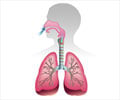Glossary
Anxiety: An undesirable emotional state associated with psychological and physiological changes in response to mental conflicts.Physiological: Having to do with the functions of the body. When used in the phrase "physiologic age," it refers to an age assigned by general health, as opposed to calendar age.
Obese: Obesity occurs when a person has too much body fat. Obesity is not the same as being overweight; a person is considered obese when they weigh 20% or more of the maximum desirable weight for their height.
Vomiting: The ejection of contents of the stomach through the mouth; or, the material itself.
Laxative: A drug that stimulates bowel movements.
Binge eating: A Condition that involves eating a large amount of food within a short period of time. Seen commonly in bulimia nervosa.
Amenorrhea: Absence of menstruation.
Scalp: Skin over the head on which the hair grows.
Infertility:The inability to produce children.
Dehydration: The condition of excessive loss of fluids from the body, frequently caused by diarrhoea.
Hormonal: Effects particularly caused by hormones.
Constipation: Restricted bowel movements
Bradycardia: A slow heart rate, usually defined as less than 60 beats per minute.
Hypothermia: A life-threatening emergency due to low body temperature causing rapid deterioration of the person's mental and physical state.
Depression: Mental state of low mood commonly associated with feelings of sadness, emptiness, despair or loss of interest in life or worldly matters.
Obsessive-compulsive: An anxiety disorder that is commonly characterized by the person's obsessive need to perform a particular task or set of tasks.
Psychotherapy: The therapy that involves the patient talking about their mental and emotional disorders to a psychiatrist, psychologist or licensed counsellor for treatment.



















